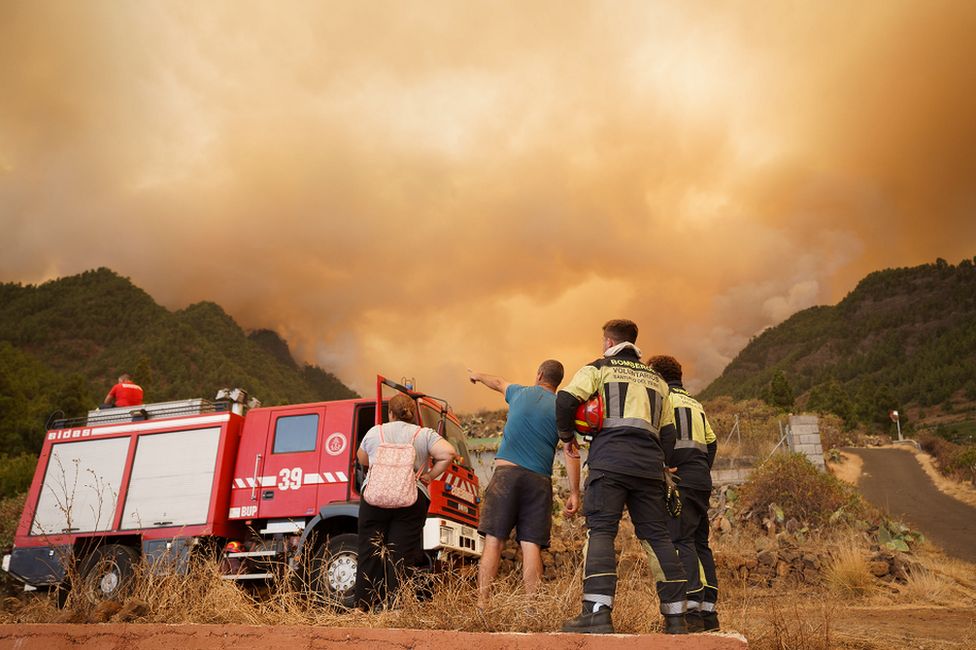A major wildfire on the Spanish island of Tenerife has led to the evacuation of five villages.
The fire has spread some 8 sq km (800 hectares) since it started in a nature reserve on the north-east coast of the island late on Tuesday evening.
Local authorities have cut off access to the forest around the Mount Teide volcano, Spain’s highest peak, and say secondary fires have now broken out.
Helicopters spraying water have been seen flying over the area.
The main blaze is spreading through woodland and ravines in the Candelaria and Arafo areas, making it difficult for firefighters to tackle.
Rosa Davila, president of the Tenerife Council, said aircraft were necessary because it was a steep area.
“The blaze has a huge potential, we have asked for additional means,” she said on local radio.
The villages of Arrate, Chivisaya, Media Montaña, Ajafoña and Las Lagunetas were evacuated on Wednesday morning.
Pedro Martinez, head of Tenerife’s emergency services, said multiple secondary fires had also broken out.
Photos show large flames engulfing parts of the forest, and thick plumes of smoke billowing into the sky.
As of Wednesday evening, there was no apparent disruption to arrivals or departures at Tenerife’s South and North airports.

It comes after the Canary Islands were hit by a heatwave that has left many areas bone dry, increasing the risk of wildfires.
Last month, thousands of residents on the nearby island of La Palma – which also forms part of the Canary Islands archipelago off the coast of northern Africa – were told to evacuate due to a wildfire amid a period of intense heat.
Wildfires have raged in many parts of the world this summer, including in southern Europe, northern Africa, Canada, and Hawaii.
- Devastating wildfires spur new detection systems
- First victims of Hawaii wildfires named
- Military airlifts hundreds away from Canada fires
Heatwaves have become more frequent, more intense, and last longer because of human-induced climate change.
The world has already warmed by about 1.1C since the industrial era began and temperatures will keep rising unless governments around the world make steep cuts to emissions.

Are you in the affected region? If it’s safe to do so, please share your story by emailing [email protected].
Please include a contact number if you are willing to speak to a BBC journalist. You can also get in touch in the following ways:
- WhatsApp: +44 7756 165803
- Tweet: @BBC_HaveYourSay
- Upload pictures or video
- Please read our terms & conditions and privacy policy
If you are reading this page and can’t see the form you will need to visit the mobile version of the BBC website to submit your question or comment or you can email us at [email protected]. Please include your name, age and location with any submission.
Related Topics
- Wildfires
- Canary Islands
- Climate change
